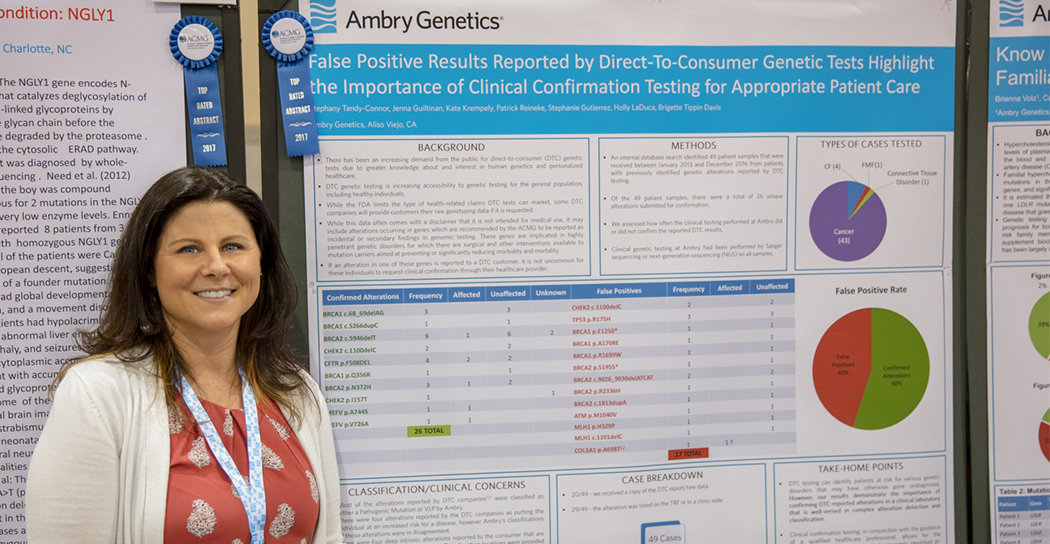The explosion of direct-to-consumer genetic testing over the last few years has created a ton of buzz, beyond just ancestry, health traits and wine preferences. Many of these DTC labs also release raw data to the consumer; this often leaves many individuals interested in what these findings mean and their potential impact on their healthcare management.

Ambry Genetics conducted a study, published March 22 in Genetics in Medicine, to assess how often the alterations detected in the raw data of direct-to-consumer testing (DTC) were found to be false positives. Our results demonstrated a 40% false positive rate highlighting the importance of confirming DTC raw data alterations in a clinical laboratory that is experienced in complex alteration detection and classification, especially prior to making any medical management recommendations.
Check out the video below to learn more.



